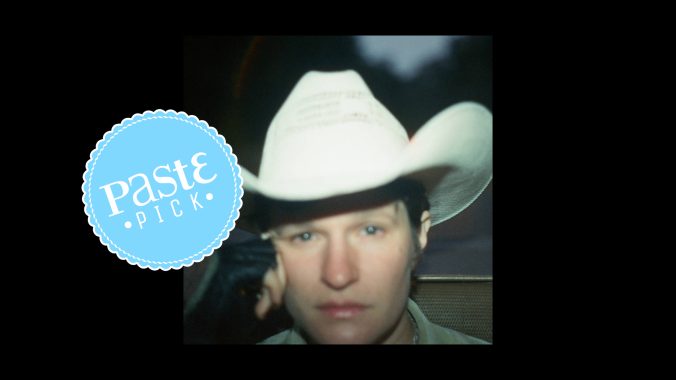On Bright Future, Adrianne Lenker Practices the Art of Everyday Magic
On her enchanting, near-perfect fifth solo album, the singer, songwriter and Big Thief bandleader takes stock of the bonds she’s made and weaves them into her most sterling work to date.

There’s a moment in “Real House” where Adrianne Lenker recalls a wish she made as a kid. While building a portal with scraps of metal in the backyard and her own imagination, she hopes, deeply, that magic could be real. That she mentions this moment in the first few minutes of Bright Future, her masterful fifth solo album, feels purposeful. There’s no artist whose music feels as inherently magical as Lenker’s does. Though a song like the faeries’ dance that is “Cattails” from Big Thief’s UFOF draws much of its power from the band’s other members (Buck Meek, Max Oleartchik, James Krivchenia), Lenker’s lyrics anchor it somewhere between worlds only her music lets us enter.
It can be tempting to view solo albums by members of bands as esteemed as Big Thief as something separate—something outside the canon—but Adrianne Lenker has especially stood assuredly on her own many times before, on records like abysskiss and songs. The music she shares under her own name is often quieter, but it consistently lands with equal power, if not more. Bright Future, though, is not only her most impressive solo album to date, but it’s also a genuine competitor for the best album she’s ever been involved with.
Bright Future came together thanks to a fruitful collaboration with a group of musicians Lenker holds in high regard: Philip Weinrobe, Josefin Runsteen, Nick Hakim, Mat Davidson and her brother, Noah. On “Real House,” a tranquil power is immediately felt as she’s joined primarily by Hakim, whose delicate piano helps highlight the vulnerability that lingers in Lenker’s every word. A patient retelling of Lenker’s childhood, it flows from memory to memory as though she’s lovingly poring over a scrapbook. Though the experiences she highlights call attention to fear and security, they can all be traced back to love, and the moments her family came together in grief. Even the last memory shared, the day their dog passed away, is looked at as a moment of communion—“I never saw you cry / Not until our dog died / And the whole family came back together / We held her body as they put the needle in her.” A part of their family that held things together did so right until the very end, and Lenker refuses to dress that truth up as anything but togetherness in loss.
The varying strength of relationships in Adrianne Lenker’s life thread many of Bright Future’s dozen songs together. On the breezy “Fool,” she imagines all sorts of lives she might live with someone else—“we could be friends, you could love me through and through.” She also makes a laundry list of what the people in her circle are up to, as if she plays the role of a mutual friend catching you up to speed with a warm temperament. You don’t have to know who Tommy is, but he had twins, and in that moment, you can just share the joy Lenker gives off as she tells you that. “Fool” is followed quickly by “No Machine,” a song most noticeable for how distinct her delivery of “I don’t know what I’d do without you” is. Lenker’s voice becomes decidedly sweeter, but it also carries the weight of someone about to burst into tears. The bond she shares with whoever she’s written the song about feels fundamental to her life, but not so specific that you can’t find parallels in your own—which is the undeniable, always-present treasure of her work in the first place.
Often, Lenker is celebrating the bonds she’s made in her life, but Bright Future frequently focuses on those that have been broken, on love. Her reactions are as varied as the kinds of affection she shares with these people. Though the album’s title may suggest some brave divination, often Lenker writes from a place of empathetic hindsight. The silver lining sewn into heartbreak on “Sadness As A Gift” is particularly striking, as Runsteen’s tender violin weeps—only to be comforted by the soft strums of Lenker’s guitar. She sings about the importance of letting go, especially when the grief around a breakup is “too heavy to hold.”
-

-

-

-

-

-

-

-

-

-

-

-

-

-

-

-

-

-

-

-

-

-

-

-

-

-

-

-

-

-

-

-

-

-

-

-

-

-

-

-








































